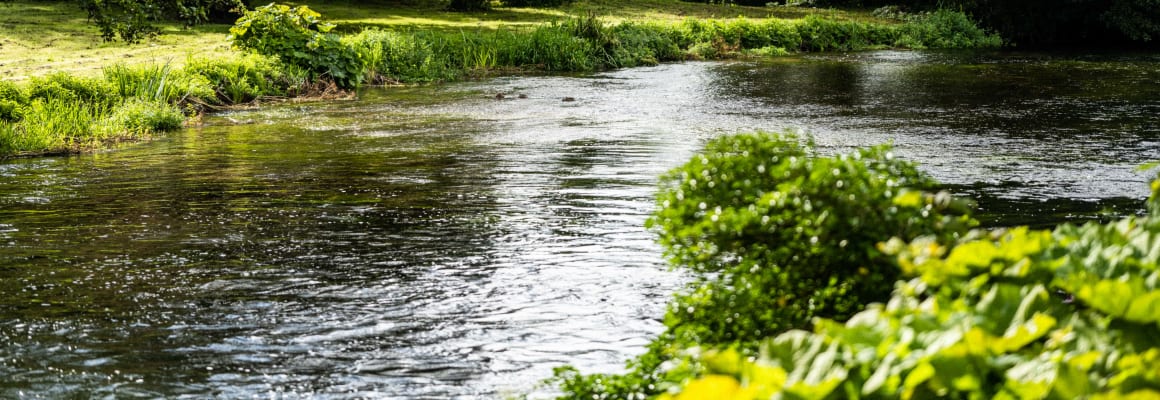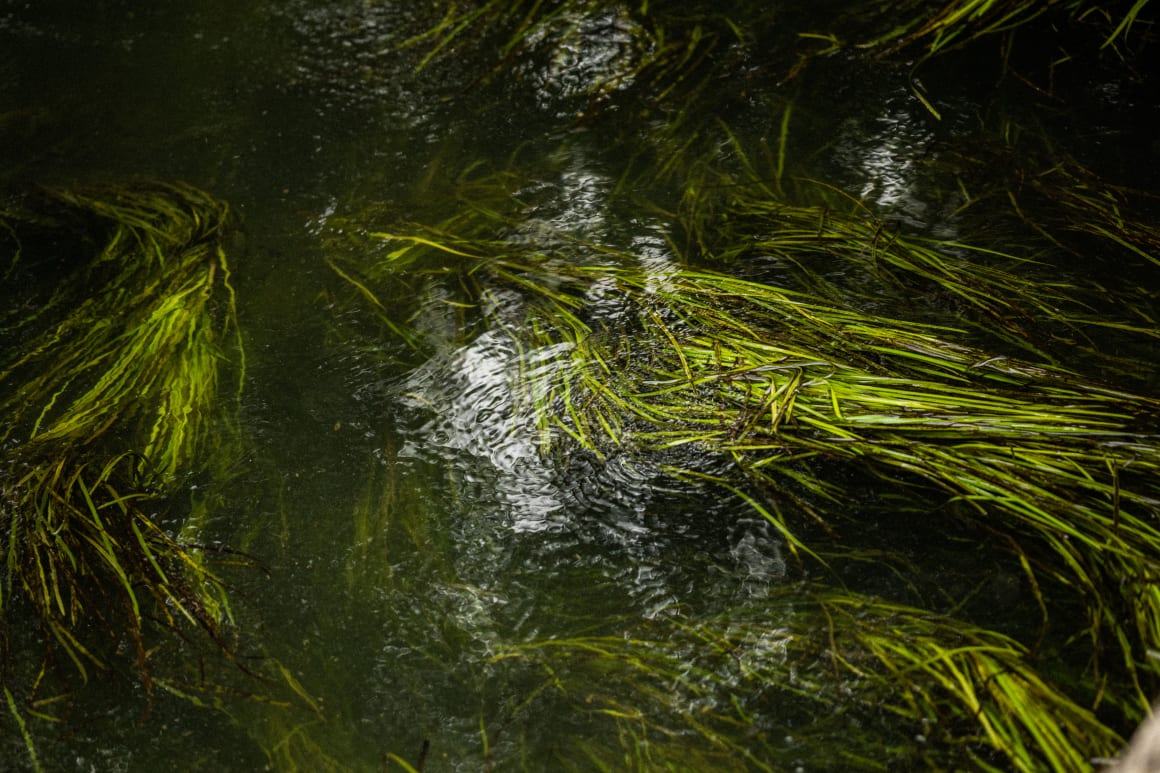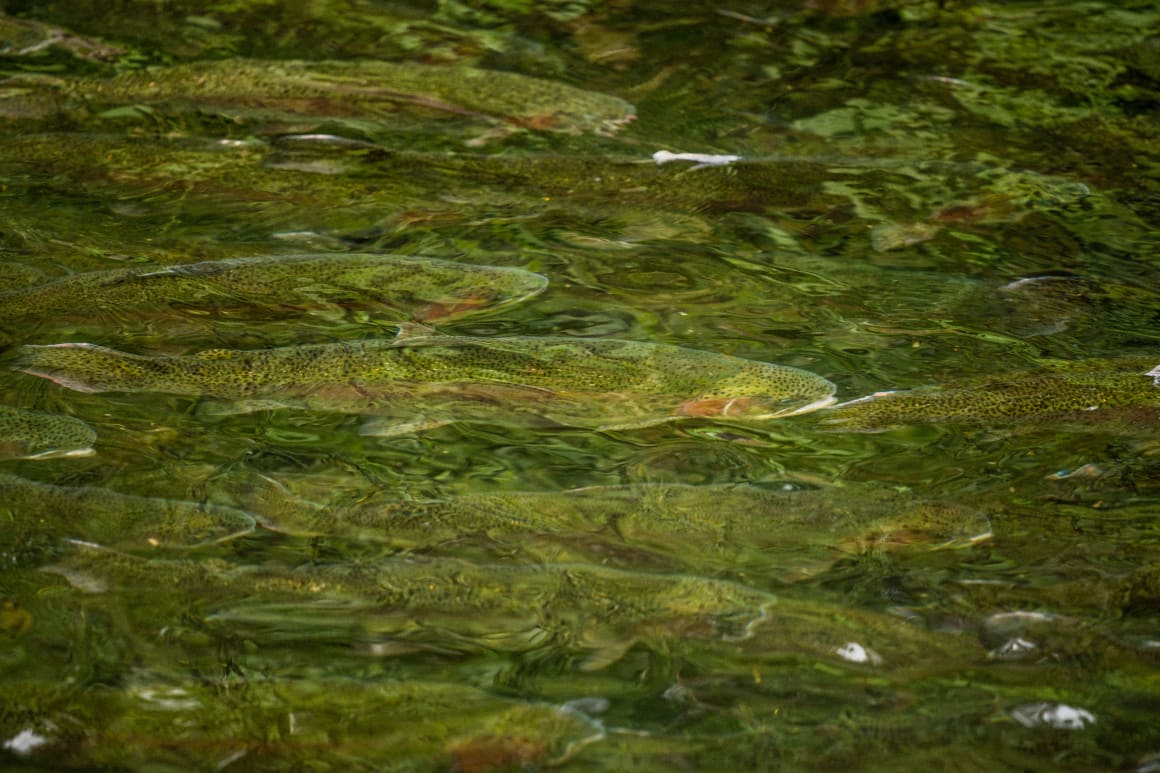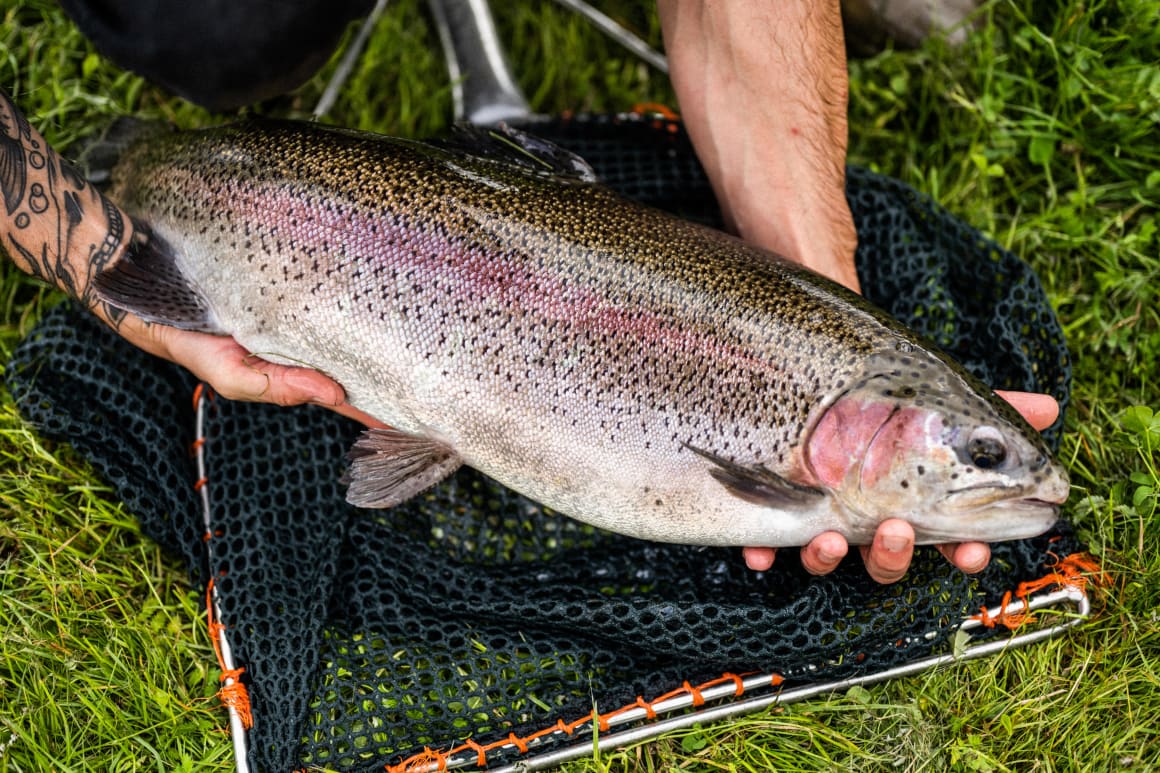Trout is an iconic British fish, triggering images of lazy, shimmering rivers in wooded pastures and valleys, the air flitting with kingfishers and drifts of insects moving through shafts of sunlight that dapple the water.
And that more or less paints the picture at Chalk Stream Trout in Hampshire. We visited them recently to capture the story of how they rear their fish, because the more we all understand how our food is produced, the better choices we can all make in looking after the planet.
We start the story with the river, as that is the heart of what makes the fish so special. Chalk streams and rivers are a unique and prized habitat, with exceptionally high levels of biodiversity thanks to their especially clean waters and relatively stable temperatures. Both of these features are due to the way the waterways are fuelled by chalk aquifers, where the water has been naturally filtered to emerge crystal clear and clean, allowing invertebrates, plants and fish to thrive. There are only 210 chalk rivers on the planet, with 85% present in the UK, so it's crucial that they are protected.
These “gin-clear” waters, as described by our guide Arthur, are what has such a big influence on the flavour of the rainbow trout they farm here. The fast flowing waters, which move through the farm at a staggering two tonnes per second, constantly stimulate the fish, making them athletes rather than sedentary drifters. This was clear as we watched them lined up, swimming against the current. With two years of slow growth in these conditions this produces a really lean, firm meat, while the beautifully clear ponds also mean that the flavour is clean, minerally and rich, rather than the muddy flavour and flabby texture that trout is sometimes dismissed for. This is terroir for fish. They are what they eat and as that flavour has built up slowly, they are all the tastier for it.
But what exactly do the trout eat? This is an important question as the diet of farmed fish is one of the areas that aquaculture has been criticised for, especially where large quantities of wild fish are used to produce farmed fish, a practise that doesn't add up from a sustainability perspective. But before we dive into the nuts and bolts of fish feed, it’s important to put fish in context when it comes to protein production. Fish are the most efficient converters of food of any farmed animal, and trout is the most efficient of all farmed fish. Coupled with good farming practises and high quality feeds, Chalk Stream Trout achieve extremely good feed conversion rates which minimises the amount of feed used, the amount of feed wasted and the amount of fish waste created.
In partnership with their feed supplier, the team at Chalk Stream have reduced the marine-caught content in the diet by 60% in the last 10 years, with the remainder sourced from sustainable fisheries certified to IFFO RS. It now takes less than 1 tonne of marine caught content to produce 1 tonne of chalk stream trout, making the farms net producers of fish. Good aquaculture is by far the most resource efficient way to produce fish protein and the team are working to reduce reliance on wild fish further, by exploring alternatives such as insect protein and algal oils.
But what about the fish waste? This is crucial to consider as it is one of the oher problems with aquaculture, as the nutrients from all that fish poo can pollute waterways downstream, causing eutrophication and biodiversity loss.
Arthur showed us how they have built a series of deep serpentine channels as the water exits the farm, forcing the water to slow and allowing the fish waste to drop out of the suspension. Regular testing shows that this ensures the water returns to the river in the same class A rated condition. The Test and Itchen Rivers are two of the most highly monitored rivers in the UK and the farm outflows are subject to a constant testing regime by the Environment Agency to ensure water quality. Overall, the enclosed nature of the farms allows greater control to settle the water before it returns to the rivers, compared to other forms of fish farming such as sea cages.
We really believe that the systems used on this remarkable farm are world-class, producing a beautiful fish that has minimal impact on the environment and is genuinely delicious. The team see protecting the rivers and the wider aquatic environment as central to their raison d'etre as they champion this glorious species. It truly is fish that has been thought through. If you haven’t already tried it, what are you waiting for?








